Navigating a business dispute can feel overwhelming, but having the right approach can make all the difference. Effective communication is key, and our letter template is designed to help you articulate your concerns clearly and professionally. Whether you're addressing an issue with a partner or a client, this template provides a solid foundation for resolving conflicts amicably. Ready to tackle your business disputes with confidence? Read on to discover how our template can assist you!

Clear identification of parties involved
In a business dispute resolution process, clear identification of the parties involved is essential to establish the context and facilitate effective communication. Identifying key parties, such as Company A, incorporated in Delaware in 2010, and Company B, a limited liability corporation based in California, formed in 2015, sets a clear framework for the resolution negotiations. Each party's representatives, often legal counsel specializing in corporate law, play critical roles in addressing the underlying issues, such as contract breaches or service disputes. Specific details regarding the nature of business operations, such as Company A's focus on software development and Company B's expertise in digital marketing, provide vital context for understanding the dispute. Furthermore, acknowledging the date the disagreement arose, May 15, 2023, alongside any relevant contractual agreements or communications, ensures all participants have a clear understanding of the situation at hand.
Concise description of the dispute
A recent business dispute has emerged between Company A and Company B regarding the delivery terms of their contractual agreement, dated March 15, 2023. Specifically, Company A asserts that Company B failed to deliver goods, amounting to 1,000 units of Product X, by the agreed-upon deadline of April 30, 2023. As a result, Company A has experienced a significant financial loss, estimated at $50,000, due to unsatisfied customer orders. Company B, however, claims that delivery delays were caused by unforeseen circumstances related to supply chain disruptions in the region. This situation requires a formal resolution process to ensure the interests of both parties are addressed and to facilitate a potential compromise or settlement.
Specific resolution request or desired outcome
In business negotiations, a specific resolution request can clarify expectations and streamline the dispute resolution process. For instance, a company may seek a refund of $10,000 due to unsatisfactory service from a vendor, emphasizing the impact on project timelines and overall budget constraints. Clear documentation of the service level agreement (SLA) can support the request, illustrating deviations from promised deliverables. Additionally, proposing a timeline for resolution, such as 30 days, can ensure both parties understand the urgency. Highlighting potential future collaboration can create a positive framework for resolution, fostering goodwill and reopening channels for cooperation.
Reference to relevant agreements or legal provisions
In business dispute resolution processes, adherence to relevant agreements and legal provisions is crucial. Specific clauses outlined in the contract (often established between two entities, such as Company A and Company B) dictate responsibilities and obligations. For instance, the arbitration clause (which may specify rules set forth by institutions like the American Arbitration Association) often dictates the method of resolving disputes outside the courtroom, providing a structured approach to mediation. Legal provisions under local laws (such as the Uniform Commercial Code in the United States) also play a significant role in determining the course of action, ensuring that both parties understand their rights and responsibilities. Gathering evidence (including emails, meeting minutes, or financial records), and documenting all communications can significantly streamline the resolution process, potentially avoiding lengthy litigation. Additionally, timing is essential; strict deadlines may exist for filing disputes or claims as per the terms of the contract or statutory guidelines.
Professional and respectful tone
Business disputes often arise from misunderstandings or unmet obligations, potentially leading to conflicts that require resolution. It is essential to approach these situations with professionalism and respect to facilitate constructive dialogue. Setting clear expectations regarding communication, such as using specific timeframes and delivery methods, can greatly assist in addressing issues effectively. Identifying key contractual terms, relevant events leading to the dispute, and the parties involved can streamline the resolution process. Engaging a neutral third party, such as a mediator from the International Mediation Institute, can offer additional support in navigating complex disputes while maintaining a collaborative atmosphere. Following established protocols and documenting interactions can help ensure transparency and accountability throughout the resolution journey.
Letter Template For Business Dispute Resolution Samples
Letter template of collaboration invitation to resolve business differences
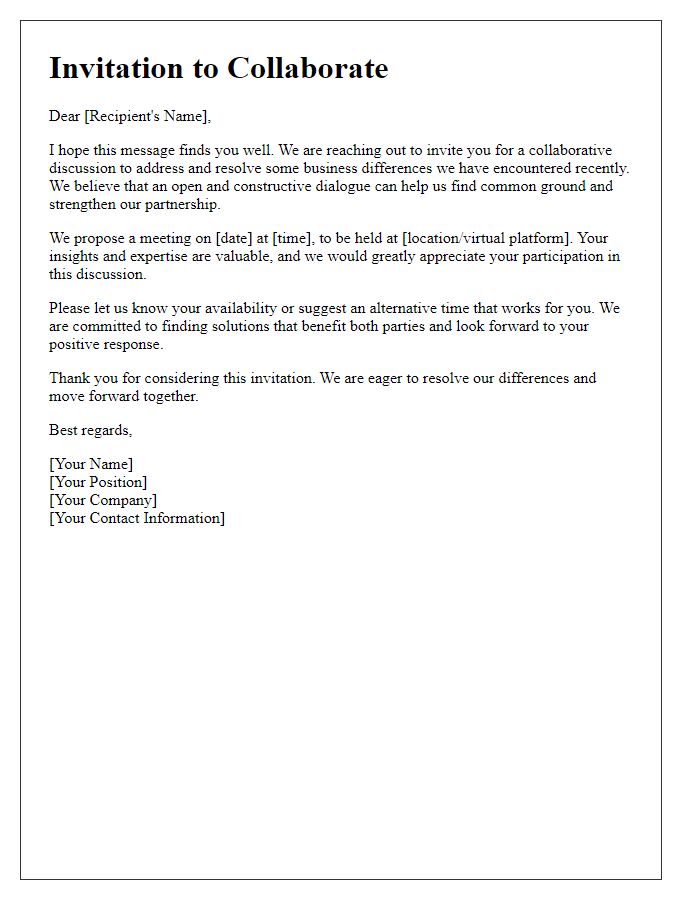

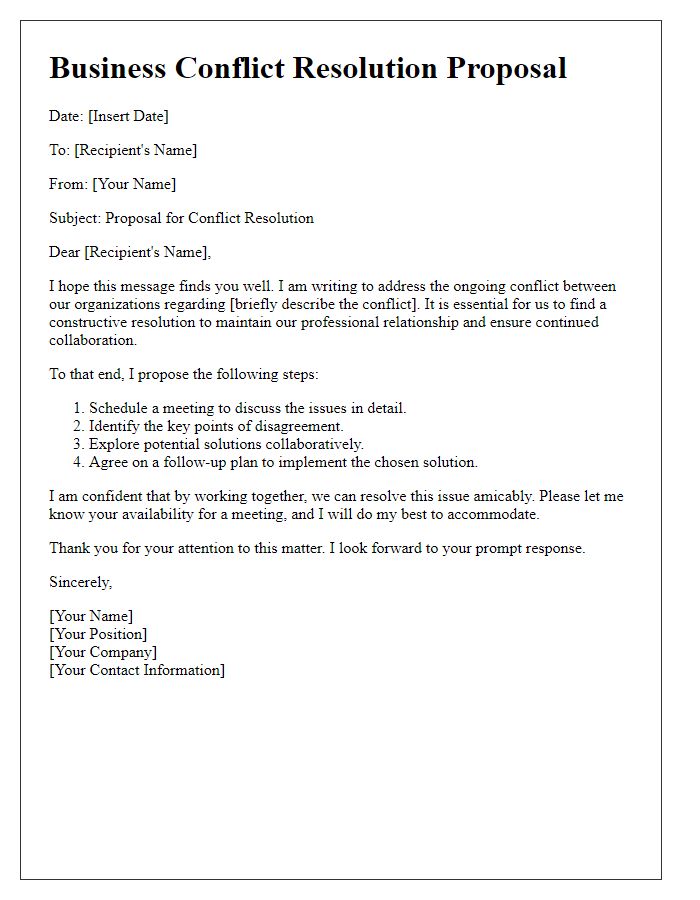
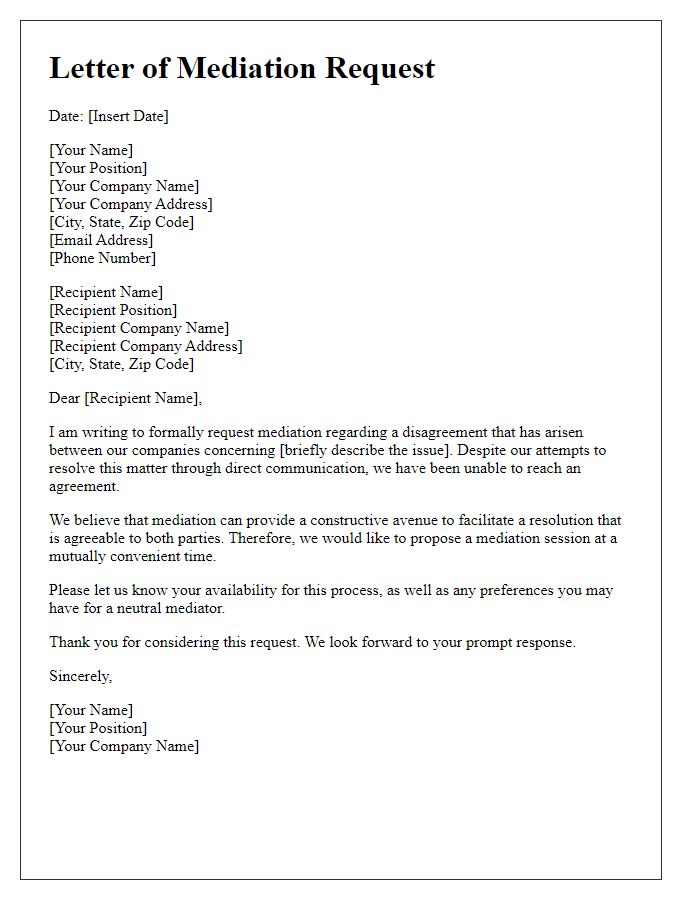
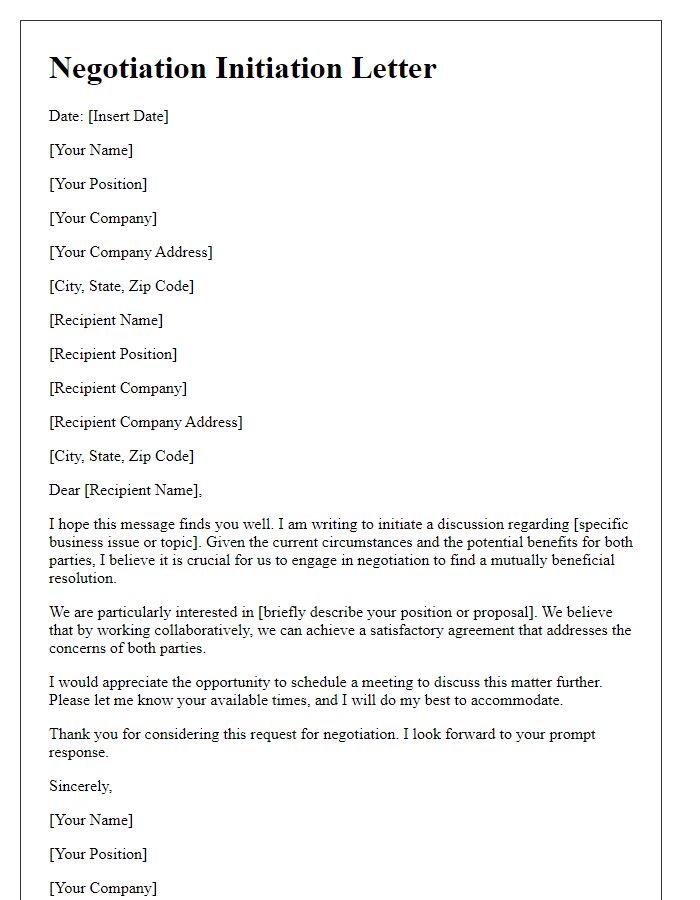
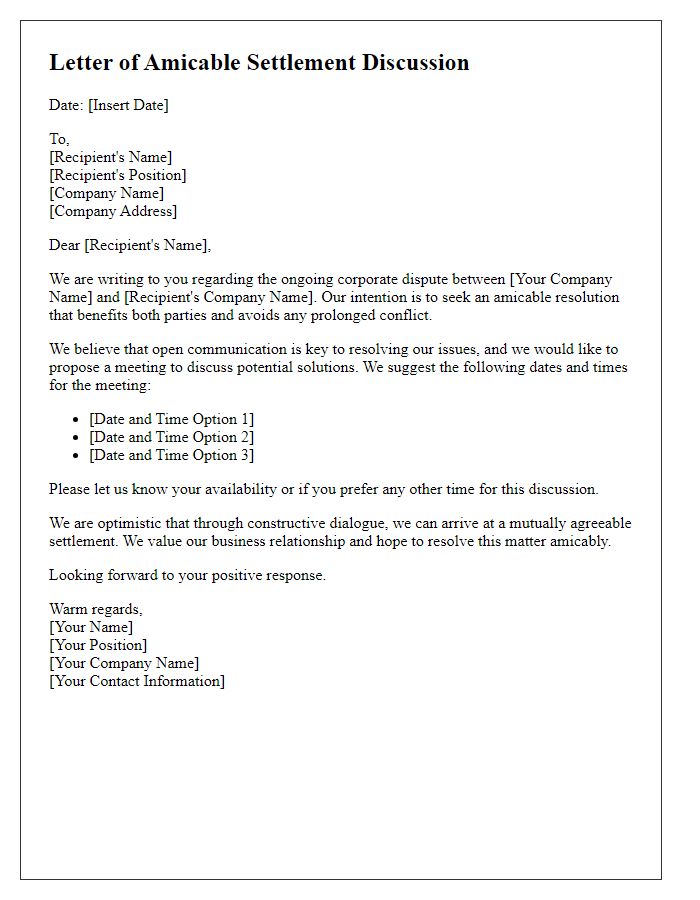
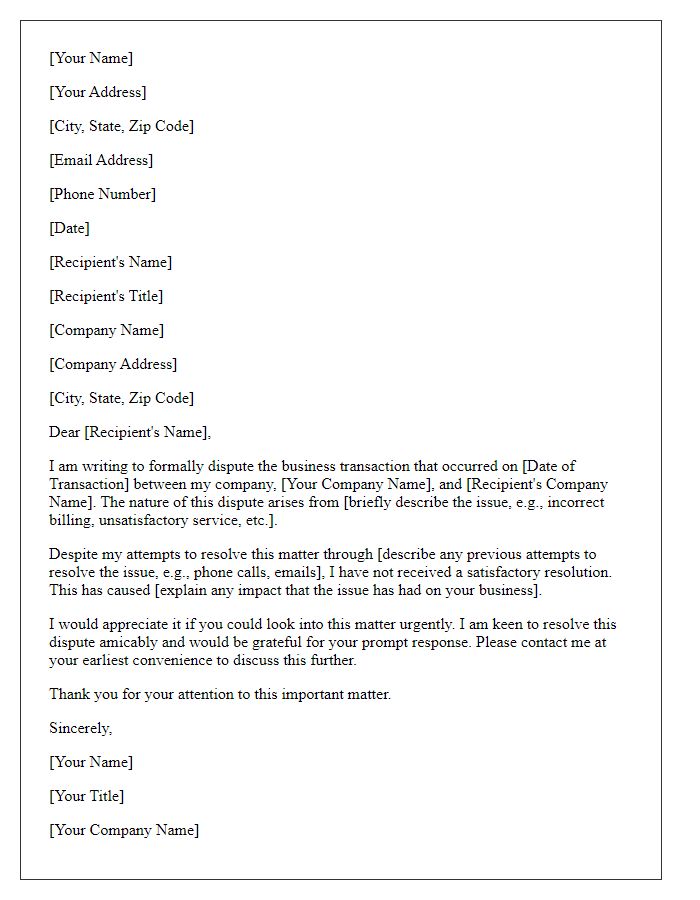
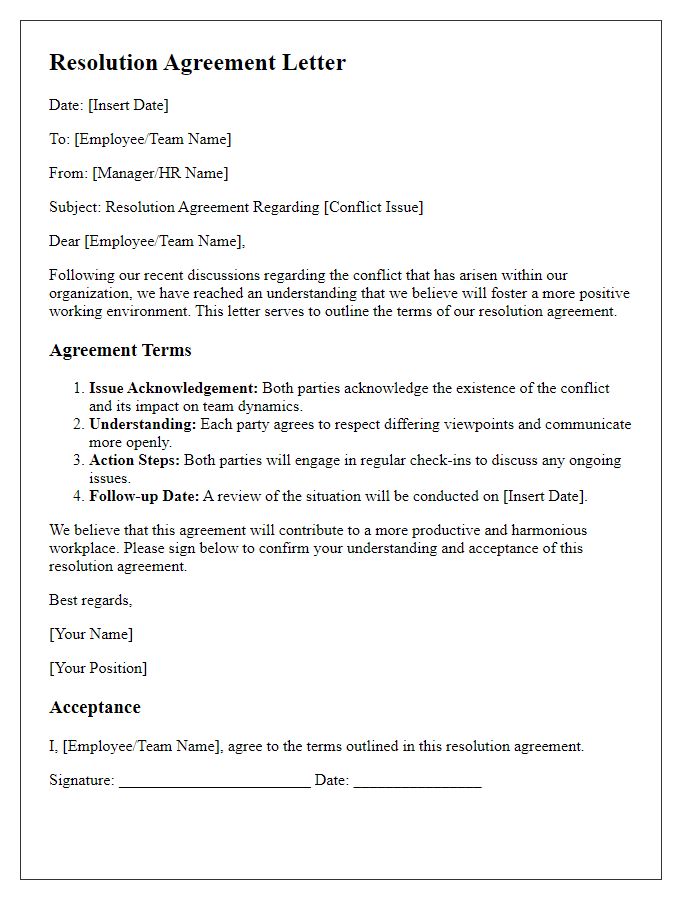
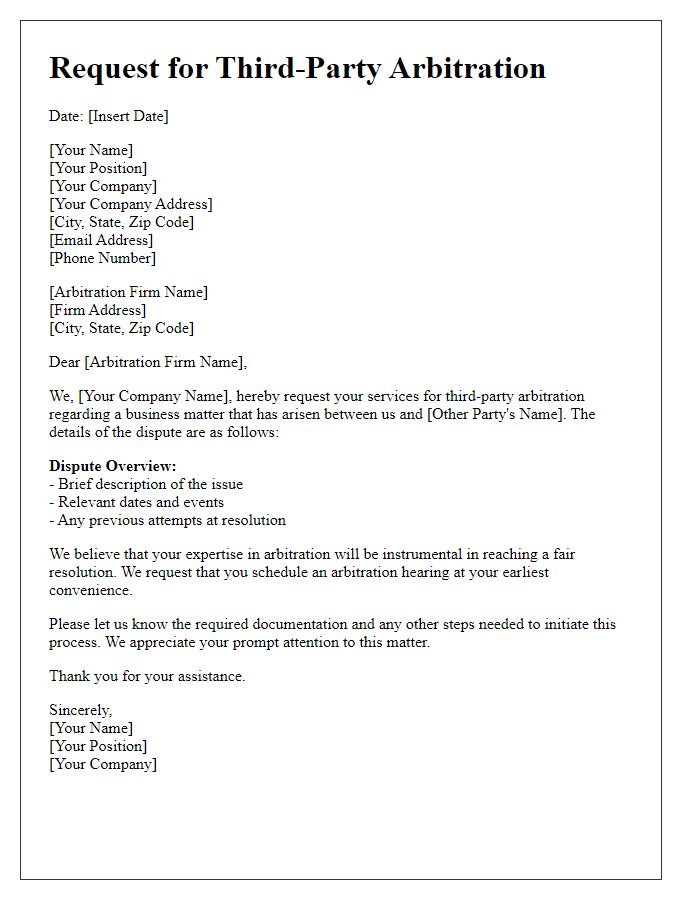
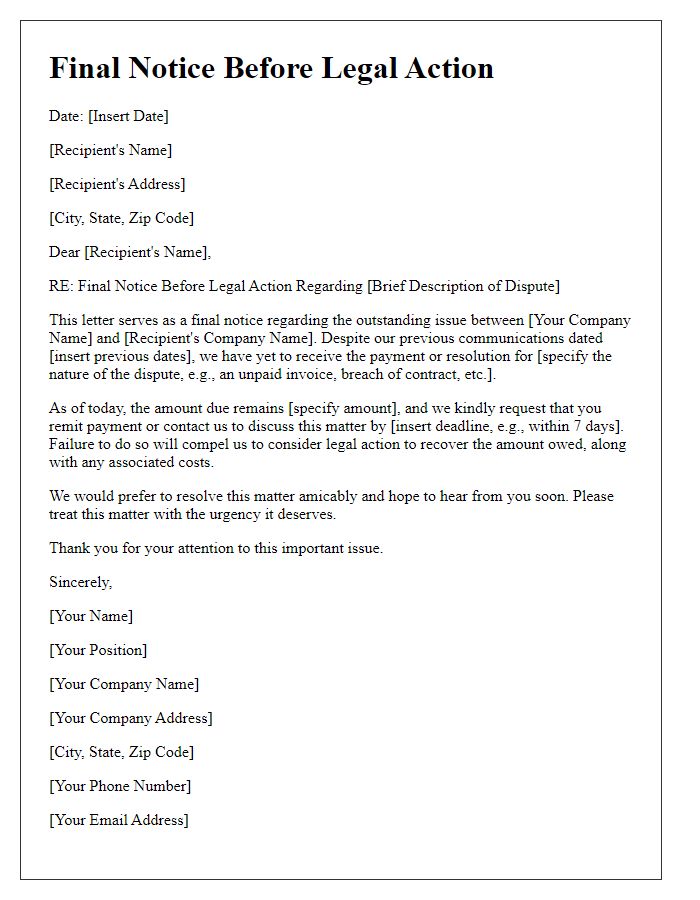
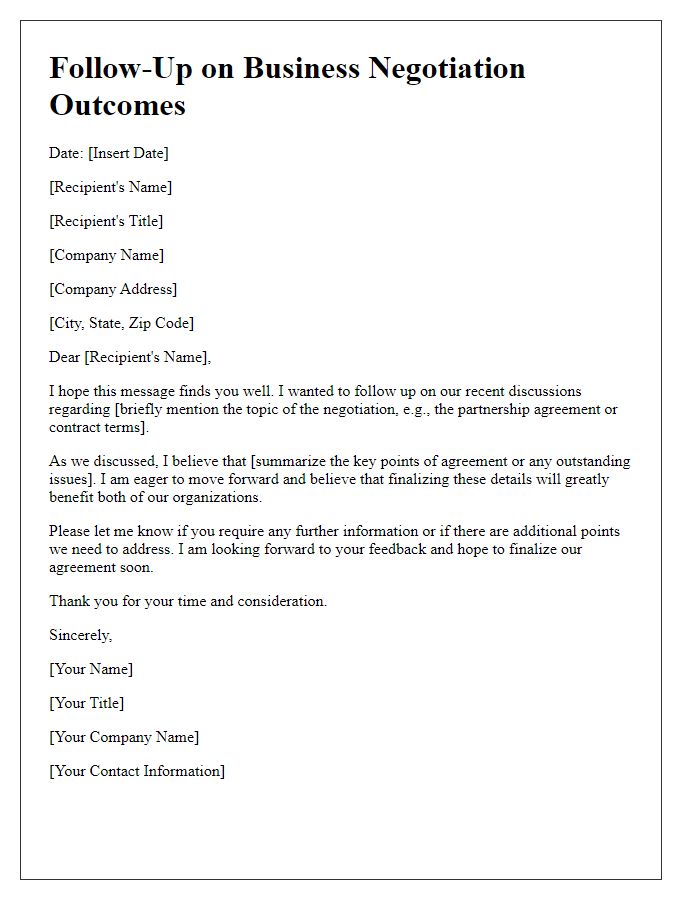

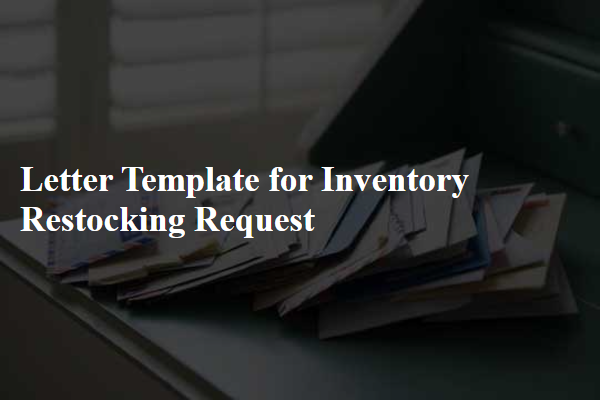
Comments